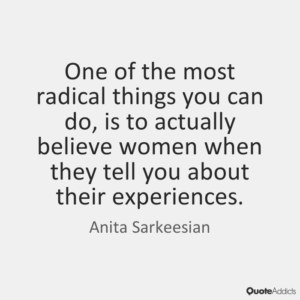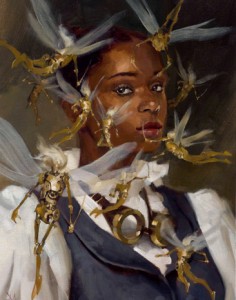 The following is my personal opinion and unconnected to any SFWA activity. I am speaking as a member of the speculative fiction community, one that has been involved in it for a decade and a half now, and one that has watched its internal workings with interest.
The following is my personal opinion and unconnected to any SFWA activity. I am speaking as a member of the speculative fiction community, one that has been involved in it for a decade and a half now, and one that has watched its internal workings with interest.
I met Monica Valentinelli in 2016 at GenCon. I don’t know her well, but I’m proud to count her as a friend and she is one of the people I have consulted with about issues gamewriters face and the gamewriting community overall. She has been a valued bridge-builder and I trust her judgment. For those who don’t know about the recent events prompting this essay, here is her account of the event as well as some reactions.
Monica is currently being punished for speaking out, with vitriol, suggested boycotts, and more, all for going public about her decision. Forces with an interest in women not speaking out have decided to make her a cautionary tale, particularly since she’s dared to lead to other people, including men, to follow her example.
One manifestation of that is a brief statement asking why she hates women, declaring that her example will make conventions reluctant to invite any women in the future. Let’s unpack that one a little because the underpinnings seem ill-constructed to me.
There are many kinds of humans in the world. That means there’re also many kinds of women. The logic of the above statement says two things: 1) that it is wrong for people speak out about conditions that are uncomfortable, unprofessional, or sometimes even dangerous and 2) that only people with the strength to survive a gauntlet that can include being groped onstage, being mocked publicly, having their work denigrated for no reason other than having been produced by a woman, and a multitude of other forms of harassment deserve careers and the rest are out of luck. Does that really need to be demanded for someone to have a career? Writers are notoriously unstable mentally as it is. Serial harassment is a professional matter.
This was underscored for me on a Norwescon (a con that does a great job with selecting programming and volunteers and understands the issues) panel that I moderated last Friday, Standing Up to the Mob, with panelists Minim Calibre, Arinn Dembo, Mickey Schulz, and Torrey Stenmark. The description was:
How do you support female creators who are being harassed online by the ravening hordes of the unenlightened? Tips for voicing your support in ways that mean something.
Here are Arinn Dembo’s excellent notes on the panel overall.
Harassment is not confined to female creators: anyone who is “othered†is particularly at risk for storms of online harassment. But women are more subject, on the average, to gender-specific slurs, accusations of sexual activity/inactivity (slut/frigid), and rape-threats. And, as with Monica and countless other women, it bleeds over into physical space with intimidation, unwelcome advances, stalkers, or attacks from random men just because they were the closest woman.
I can tell you from personal experience that women get made uncomfortable at conventions on a regular basis, that I have heard literally dozens of these stories, and read dozens more online. That online threats spill over into real life intimidation and more threats, sometimes outright attempts, to harm our health, our finances, and our loved ones — often children. The issue is real. It is time to stop pretending it is not.
What follows is an attempt to collect some notes from that panel and use them to explain why I think what Monica did was brave and inspiring, and why it should be a kick in the butt to do something.
The panel was specifically about online harassment. If you’re reading this online, you are part of that world as well, and you may have noticed instances of online harassment before. If you haven’t, I can assure you they’re there. The harassers’ agenda is to overwhelm the victim, to cut their productivity, and to punish them for some perceived slight while at the same time making an example of them so other creators will hesitate before speaking out.
How can you support an online creator that is under attack? Some methods listed during the panel:
- Buy their stuff. Spread word of it to other people that would enjoy it. Support them financially, particularly at a time when they’re worrying about being hit there.
- Believe them when they say, “This has been my experience.â€
- Let them know you’re supporting them. Drop them a nice note, send them kitten pictures, do whatever you can to show you have their back. Provide something that counteracts the scores of nastygrams, death/rape threats, and other harassing messages they’re getting.
- Draw fire away, not towards. Untag them in conversations that are going to get heated. They’re catching plenty of it as ise. Don’t just fan flames and make things worse for them.
- If they want to take a break, encourage it. Facilitate it even. Offer to moderate their social media if they want to move away from it.
- Figure out what rewards the troll and try to remove it. Often the reward is attention or any kind of reaction.
- Hold people accountable for their toxic fans, particularly when they’re egging them on.
Our community should protect its own and behave like a healthy immune system, coming to the aid of parts under attack. But it is not enough to rely on the goodwill of individuals. That moves me to the metaphor of the missing stair, which came up frequently in the panel.
If you’re not familiar with it, the analogy deals with a serial harasser in a community. Everyone in the community knows about them, and the way its deal with is to warn people privately: Don’t get caught in an elevator alone with X, don’t accept invitations from Y. Watch out for Z, they pinched my butt so hard it left a bruise. It’s like a staircase with a missing stair, which everyone knows not to step on. Over and over, despite the fact that people keep tripping. Keep getting hurt: physically, mentally, economically.
It’s time to stop pretending the missing stair doesn’t need to be fixed. Relying on word-of-mouth means that the people who are new, who are just entering, are the ones most at risk of trying to step on it. Some conventions have tried to deal with it in one way or another; others plead ignorance, saying that each convention is organized by different people, so how can this knowledge be passed along? In my opinion the situation is unacceptable.
Monica has done the most important thing people can do against harassment: speak up. Odysseycon failed to do the second most important: believe someone when they say, “this is my experience.â€
How can we repair the missing stairs so no one is hurt by them again? In my opinion, there needs to be some sort of way for conventions, conferences, and other organizations to compare notes in a systematic way, perhaps a database where, each time there is an incident, it gets documented. So a convention organizer could check: is the person I am considering using at my convention someone who has harassed people in the past? Because con organizers need to know what they are taking on.They need all the information there and findable so they cannot ignore it.
Such a system would depend on people coming forward and on people not being punished for speaking up. One objection that gets raised to such a system is: what if it gets used unfairly? What if someone targets a person and uses the system against them?
It is a valid question, though perhaps not quite as strong a possibility as some people might paint. However, having the database would let the convention organizer look at the incidents. Are they all coming from one person? Then they may want to investigate further. Are they coming from multiple people? Then there is a problem. A serial “blamer,†someone intent on weaponizing the system, would in fact be exposed by it.
One reason this idea of tracking incidents sometimes creates unease is the idea of a formal blacklist to replace the current web of gossip and tips passed along among con organizers, authors, and other publishing professionals. That is not the point. The point is to allow con organizers to be informed when making their decisions. If harassment is something they don’t want to worry about, they don’t need to consult the database. But for the ones who want to make sure every guest feels welcome, this would be a valuable source of information. And it would be more objective than that web of gossip, and let people know that they’re not the victim of some background campaigns that they don’t. Indeed, this system would act to prevent mislabelings.
The inevitable question, “Why doesn’t SFWA do it?†will be raised. The answer is this: This effort must come from a coalition of the people organizing conventions. They know best how something like this should be structured and administered, and it is not my place to tell them how to do it. SFWA has provided some useful resources for conventions; both the Accessibility Checklist for SFWA Spaces and the Policy and Procedure on Harassment in SFWA Venues statement are available online.
This is what I know. The missing stair is tripping up newcomers to our community. People are being hurt by it, even the ones who know how to navigate it well, by efforts to pretend it doesn’t exist. The fact that we, the fantasy and science fiction community at large, tacitly allow this situation – the enabling of serial harassers in a way that drives out new writers, fans, and publishing professionals — absolutely infuriates me. We need to start talking seriously about how something like this should be implemented in a way that is both as fair and is effective as possible. For Pete’s sake, people.
I welcome conversation here, particularly between people with actual experience organizing and running cons. Mine consists of going to a lot of conventions over the past decade or so and watching the SFWA events team put on an amazing conference each year without my assistance, while congratulating myself on having avoided all the work while being to reap the benefit of their hard work. However, I do have plenty of experience with comments, which will be moderated for obvious reasons.





